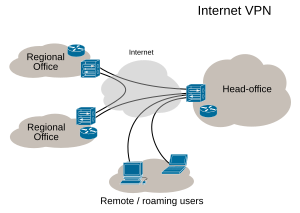Government Emphasizes the Need for Data Protection When Traveling Abroad
The US Government has issued a warning to anyone traveling abroad about taking special precautions to secure personal online data. Special emphasis was placed on bank information, personal usernames, passwords, and any additional data deemed to be sensitive.
The Big Question
As the need for data protection when traveling abroad continues to grow, the big question is how the data should be protected. There are a variety of options available. Using a VPN is considered to be the best option. A VPN provides multiple layers of protection from a variety of threats.
A VPN Can Bypass ISPs
Before the 2008 Olympics in China, the US government warned travelers that the Chinese government may gain access to personal information stored on mobile devices. While this was vigorously denied, the popular theory was that the Chinese government would use local ISPs to track and capture data. When users access the Internet with a VPN connection, ISPs lose the ability to see what information is being transferred. All of the data packets are encrypted to prevent third parties from eavesdropping or snooping.
A VPN Prevents Malicious Code Injection
A VPN relies on tunneling in order to establish a secure connection. A tunnel is a connection between the user’s device and VPN server which is isolated from other sources of data. This means third parties cannot inject malicious code into the data stream and expect it to reach the user. A tunnel accomplishes this by only allowing the encrypted data to be transferred.
A VPN Can Be Used Anywhere There Is an Internet Connection
When traveling abroad, a VPN is an ideal solution because it provides global protection. Regardless of where the user is located, they have the ability to establish a secure VPN connection, assuming they can access the Internet. Since a majority of data security threats arise from being connected to the Internet, a VPN is available to support most data security threats.
Don’t Forget about Other Forms of Protection
Using antivirus software and malware detection tools are essential as well. A VPN doesn’t protect users from downloading malware from websites. It only secures the data within the tunnel. It does not control what enters the tunnel at either endpoint. For this reason, users still must be careful what they access online, even when connecting with a secure personal VPN in USA.

Category: Uncategorized






